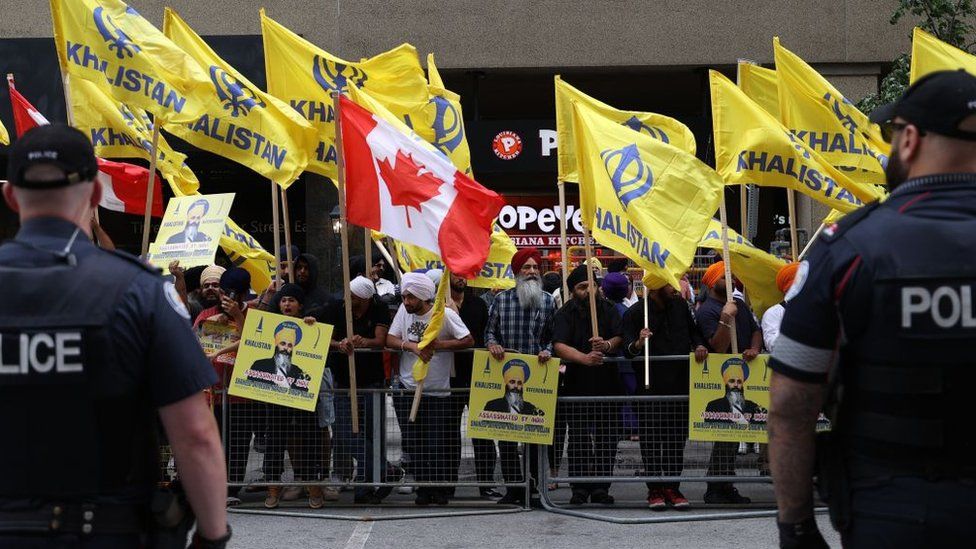-

-
-
Loading

Loading

Canada has heightened tensions with India by stating that it is examining evidence that potentially links the Indian state to the murder of a separatist leader in British Columbia. To understand the context of this ongoing controversy, it's important to look at Sikhism, which is one of the world's major religions. It originated in the Punjab region, which is now divided between India and Pakistan. Sikhs make up around 2% of India's population, but there are significant diaspora populations in countries like Canada, the US, the UK, and Australia. The demand for an independent homeland for Sikhs in India, known as the Khalistan movement, rose in the 1980s in the state of Punjab. It faced opposition from Indian armed forces, leading to a decline in support within Punjab. However, Sikhs in the diaspora have continued to advocate for a separate state, intensifying their calls for independence in recent years. India strongly opposes the Khalistan movement, and all mainstream political parties, including those in Punjab, denounce violence and separatism. The tensions surrounding this issue have played a significant role in two controversial incidents in Indian history—the invasion of the Golden Temple and the assassination of Prime Minister Indira Gandhi. In 1984, the Indian military stormed the holiest site for Sikhs, resulting in many deaths and damage to the temple. Shortly after, Gandhi was assassinated by her Sikh bodyguards, leading to widespread violence and thousands of deaths, primarily among Sikhs. The wounds left by the violence of the 1980s make Khalistan a sensitive issue for India. All political parties in India are opposed to Sikh independence, allowing the government to prioritize bilateral diplomatic relations over the Khalistan movement. The recent murder of Canadian Sikh leader Hardeep Singh Nijjar has further fueled diplomatic tensions. Nijjar, designated as a terrorist by India in 2020 for his alleged links to the Khalistan Tiger Force, was shot outside a Sikh temple in Canada. His supporters deny the allegations, stating that he had previously faced threats due to his activism. These tensions emerge against the backdrop of India pressuring governments in Canada, Australia, and the UK—countries with significant Sikh populations—to address what it calls "Sikh extremism." India has openly stated that failure to tackle this issue would impede good relations. While Australia and the UK have taken measures to address the concerns, Canada has faced criticism for its perceived failure to oppose the pro-Khalistan movement. Canadian Prime Minister Justin Trudeau has expressed his intention to address the violence but has also voiced concerns about foreign interference. The controversy escalated in March when protests outside the Indian High Commission in London saw crowds waving "Khalistan" banners and an individual removing the Indian flag.